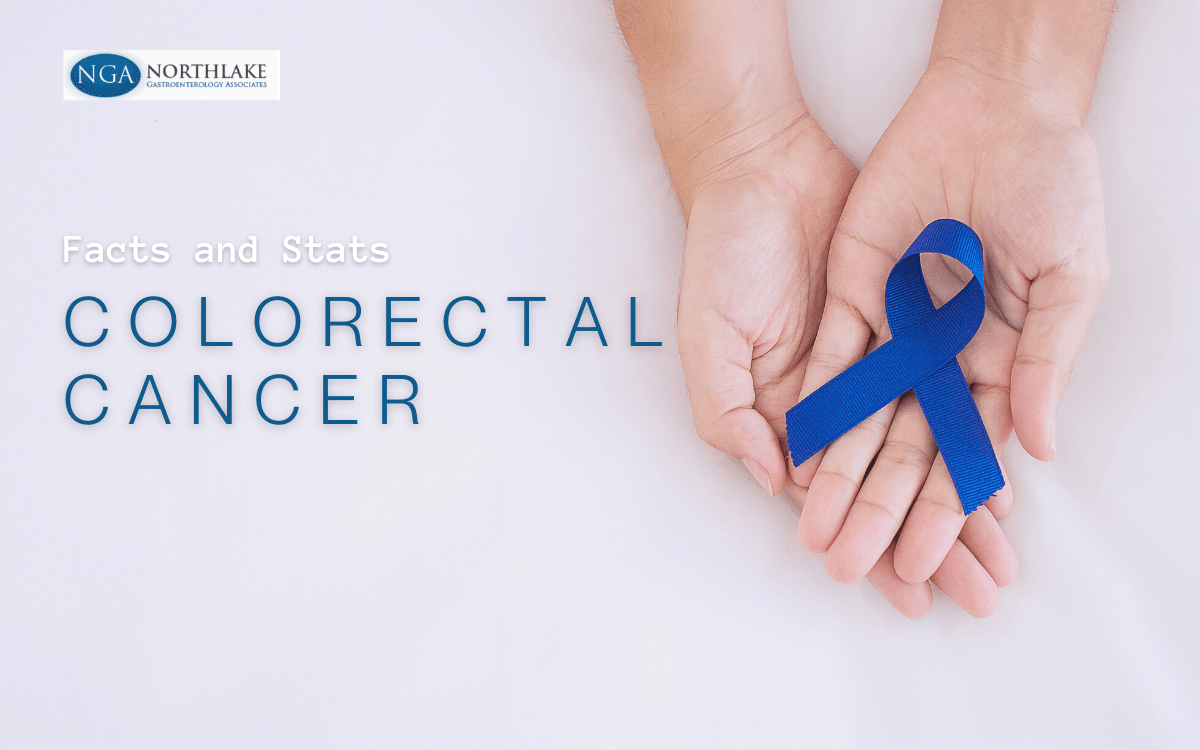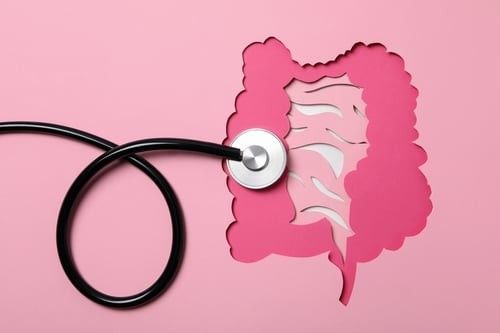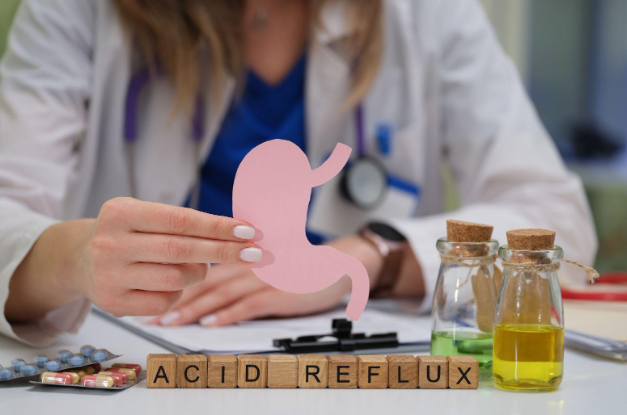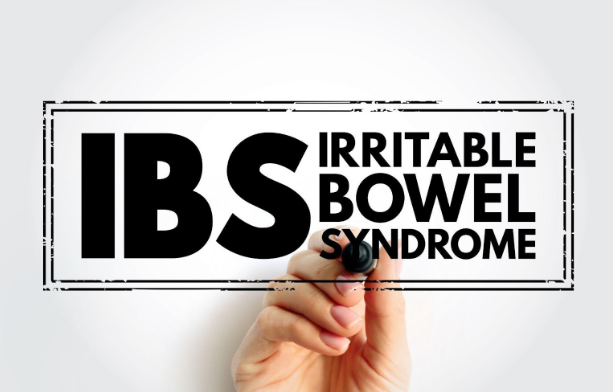Colorectal Cancer Facts and Stats

Colorectal cancer, also known as bowel cancer, colon cancer, or rectal cancer, is any cancer that affects the colon and rectum. It is currently the third most common cancer in the U.S. and the second cause of cancer-related deaths. In 2021, the American Cancer Society (ACS) predicts that 104,270 new cases of colon cancer and 45,230 new cases of rectal cancer will occur in the United States.
Though fatality rates have been falling due to medical advances, a 2021 analysis observed that numbers of diagnoses are rising among people younger than 50 years old, possibly due to improvements in screening.
At Northlake Gastroenterology, we can help you work through your diagnosis and assist you in taking the next step. Here's what you need to know about this form of cancer.
What Is Colorectal Cancer?
Colorectal cancer, also known as colon cancer, refers to cancer that grows in the colon. The large intestine assists with the expulsion of human waste as the final component of the digestive tract.
Colon cancer develops when harmful cells multiply and divide rapidly in the colon, causing the immune system to shut down. The condition is localized in the colon, and it causes harmful cells to divide and multiply rapidly. Not only do the cancer cells grow quickly, but they also manage to avoid immune cells designed to kill them.
Most cases of colon cancer start as polyps, which are growths in the colon caused by DNA mutations of normal cells. If caught at this early stage, a surgeon can often successfully remove it through surgery. When cancer grows, it becomes more embedded in your body's composition, making it more and more difficult to destroy.
For this reason, early detection plays an extremely large role in your survival likelihood.
Doctors categorize the disease's progress and intensity level in stages 1-4, with stage one indicating the lowest risk levels, and the risk increases exponentially with each stage. See the progress of the disease through each stage:
● Stage I 一 localized development of removable cancerous polypus/tumor.
● Stage II 一 cancer reaches the outer layer of the colon, remaining localized in the colon.
● Stage III 一 cancer gets deeper into the colon and spreads to lymph nodes making it regional.
● Stage IV 一 cancer has permeated the entire colon and spread to other organs.
Survival Rate
Colon cancer ranks as the third most common cancer death among both men and women.
Colon cancer survival rates decline as a person falls deeper into the stages of the disease. While many additional factors play a role in a person's unique circumstances, the development of cancer plays the largest role in the patient's likelihood of beating the terminal illness.
● The 5-year survival rate of people with localized stage colorectal cancer is 90%.
○ If the cancer is in the surrounding tissues or organs/regional lymph nodes, the survival rate is 72%.
○ If the cancer is in distant parts of the body, the survival rate is 14%.
● The 5-year survival rate of people with colon cancer is 63%.
○ If diagnosed at a localized stage, the survival rate is 91%.
○ If it has spread to the surrounding tissues or organs/regional lymph nodes, the survival rate is 72%.
○ If the cancer is in distant parts of the body, the survival rate is 14%.
● Patients with rectal cancer have a 5-year survival rate of 67%.
○ If diagnosed at a localized stage, the survival rate is 89%
○ If it has spread to the surrounding tissues or organs/regional lymph nodes, the survival rate is 72%.
○ If the cancer is in distant parts of the body, the survival rate is 16%.
In addition to the stage of cancer, age and medical treatment also play large roles in a patient's survival rate.
Treatment
Your treatment method will depend on the stage of cancer and your preferences, but the most common colon cancer treatment methods include:
● Surgery
● Chemotherapy
● Targeted Therapy
● Alternative Treatments
Surgery
If possible, your surgeon will attempt to treat your colon cancer by removing the cancerous cells in surgery. In the early stages of colon cancer, this simply involves removing the cancerous tumor, but as cancer develops, your surgeon may need to remove a substantial portion of your colon.
Surgeons may also suggest additional surgery if the cancer spreads to your lymph nodes or organs.
Chemotherapy
Chemotherapy refers to medical treatment that attacks the cancerous cells in the body with admirable effectiveness, but it can also severely damage healthy parts of your body, causing violent illness and additional side effects.
Targeted Therapy
Targeted therapy refers to medication specifically developed to attack colon cancer cells in a very specific way, such as hindering the growth of blood vessels or proteins required for cancer to grow.
While not as effective as chemotherapy, targeted therapy does not cause nearly as much damage as chemotherapy does.
Alternative Treatments
Some patients find it beneficial to embrace alternative treatment methods, such as aromatherapy, acupuncture, yoga, and the promotion of a healthy immune system.
In conjunction with traditional medicine, alternative treatments show a certain amount of possibility, especially when it comes to the patient's quality of life and happiness. However, alternative treatments should not replace traditional treatments.
Get Tested
60% of colon cancer fatalities could have been avoided with proper checkups that include a colorectal cancer screening. That's why all adults need to take the proper precautions.
Contact Northlake Gastroenterology in Louisiana to request an appointment today.
More Blogs












